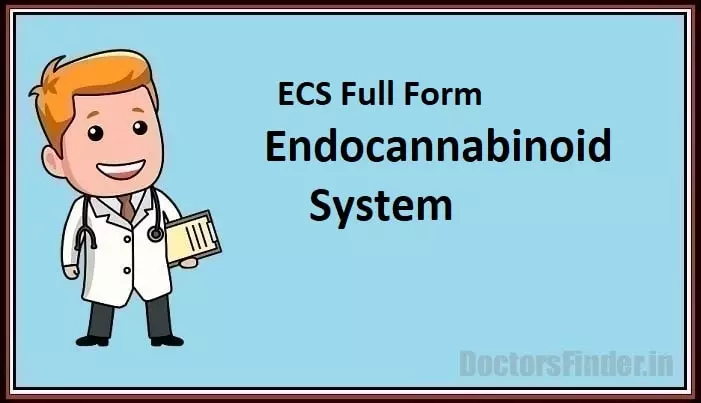ECS Full Form in Medical term is endocannabinoid system.
An extensive neuromodulatory system, the (ECS) is involved in synaptic plasticity, the response to both environmental and endogenous insults, and the development of the central nervous system (CNS). Cannabinoid receptors, endocannabinoids, and the enzymes involved in their biosynthesis and catabolism make up the endocannabinoid system (ECS).
They bind to the cannabinoid (CB) 1 and 2 receptors, which are members of the G protein-coupled receptor family. The cannabinoid 1 receptor (CB1R) is widely dispersed throughout regions of the brain that regulate motor function, mood, motivation, and energy balance. Adipose tissue, pancreatic, liver, gastrointestinal tract, skeletal muscles, cardiac, and reproductive system are only few of the peripheral organs that express this receptor.

Several studies have shown the importance of the ECS to the processes of learning and memory. An easily observable negative impact of using cannabis for recreational purposes at large doses is a transient disturbance of short-term memory. With sobriety, one’s memory is restored to its original state. Acute effects of THC (the active element in cannabis) on human memory and functional brain imaging have been the subject of some advanced research.